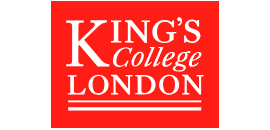- ...
Masters Compare - Find your perfect masters course.


The overarching aim of the project is to investigate the oxytocin system in patients with rare hypothalamic disorders (craniopharyngioma, septo-optic dysplasia), who often present with neurodevelopmental deficits associated with Autism Spectrum Disorder and hyperphagia, and in healthy controls. We will be using a range of methods, including behavioural phenotyping, cognitive assessments, neuroimaging (EEG and/or fMRI), oxytocin quantification in plasma/saliva, and pharmacological interventions.
Part 1 involves the continuation and completion of an ongoing MRC-funded clinical study (Ethics approval: West Midlands – Solihull Research Ethics Committee of the NHS HRA ethics committee (23/WM/0104)). This involves the assessment of neurobehavioural and neurocognitive profiles (focusing on social cognition), medical profile and the quantification of plasma and salivary oxytocin in children/adolescents with craniopharyngioma and septo-optic dysplasia (recruited from 4 participating NHS Paediatric services, including KCH), and age- and gender-matched healthy controls.
Parts 2 and 3 are under development. Part 2 will involve a targeted neuroimaging (EEG and/or fMRI) intervention study with a subsample of children with craniopharyngioma and healthy controls. Part 3 will involve an intervention neuroimaging study (EEG and/or fMRI) in healthy controls, aiming to illuminate the mechanisms through which intranasal oxytocin affects brain function.
PhD Demonstrator’s role:
In addition to meeting the requirements of a PhD research student, demonstrators will be expected to spend a minimum of 144 hours per annum on education activities commensurate with the Graduate Teaching Assistant (GTA) role (e.g., leading seminars and practicals, assessment of student work and giving feedback). These hours are calculated according to the tariff for GTAs teaching on the IoPPN Undergraduate Programmes, and include hours for preparation (e.g., to lead a seminar) and directly related compulsory professional development (e.g., training for assessment). PhD Demonstrators may do more than the minimum 144 hours per annum, and, indeed, are encouraged to do so if this fits with their professional development and career goals. Hours worked on education activities beyond 144 hours in an academic year are paid according to KCL’s standard rates for GTA teaching. We recommend that PhD Demonstrators spend up to 20% of their time each year on education activities and associated professional development. The specific content of these duties will be agreed at the start of each academic year with the Programme Directors and will reflect the needs of the undergraduate programmes, along with the expertise and development objectives of the PhD Demonstrator student.
Students applying for the PhD Demonstrator Studentship will also be assessed during interview on their teaching skills.
Applicants should have (or be expected to obtain) a bachelor’s degree with 2:1 honours (or Overseas equivalent). A 2:2 degree may be considered only where applicants also offer a master’s with Merit.
Only home students are eligible. Students will be funded for 4 years full time, including home tuition fees, annual UK Research Institutes-equivalent stipend (£22,780 for 2025/26), and an allowance of £5K for consumables, research and travel costs.
Supervisors
1) Dr. Yannis Paloyelis, PhD CPsychol FHEA, Reader (Associate Professor) in Neuroscience and Psychology - yannis.paloyelis@kcl.ac.uk
2) Dr. Ritika Kapoor, Consultant and Lead in Paediatric Endocrinology, King's College Hospital, Honorary Reader, King's College London - ritika.kapoor@kcl.ac.uk
3) Dr Katja Brodmann, FHEA, Senior Lecturer in Neuroscience and Psychology Education - katja.brodmann@kcl.ac.uk
Applicants must complete and submit an online admissions application, via the admissions portal by midnight (23:59 GMT), 19th August 2025
On the ‘Choosing a programme’ page, please select (Neuroimaging) Research MPhil/PhD (Full-time).
More information on the department and the programme is available at the departmental prospectus page here:
In your application, you will be asked to include:
In the Funding section, please tick box 5 and include the following reference: (YP-Neurohyp-2025)
Please note there is no need to complete the Research Proposal section in your application as the project has already been set. You are welcome to email Dr. Yannis Paloyelis for more information regarding the project and studentship.
If you have any queries regarding the application process, please contact the Education support team at ioppn.pgr@kcl.ac.uk.
Only home students are eligible for funding

...